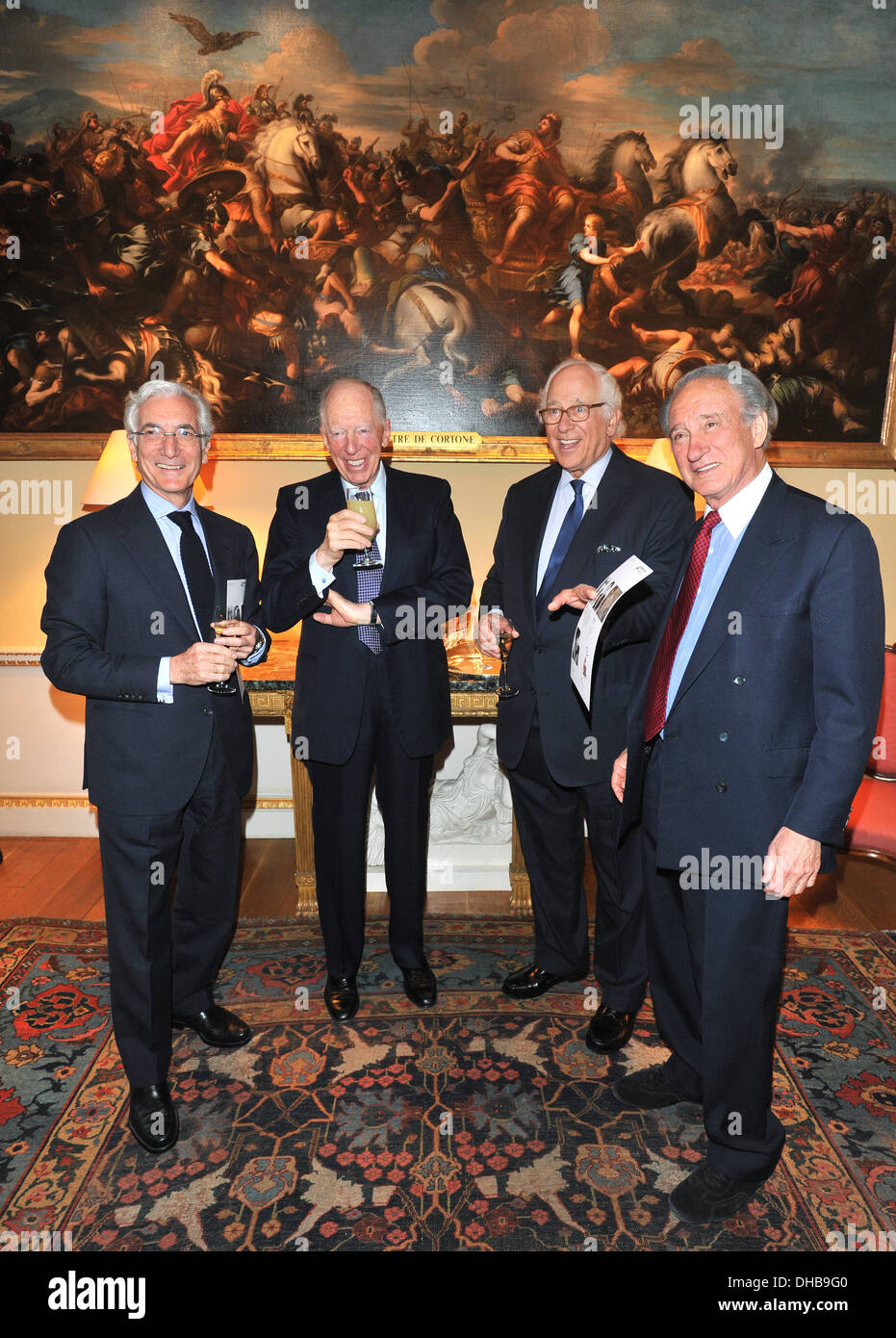Are the whispers of the Rothschild family still echoing through the corridors of power today? Their influence, a complex tapestry woven through centuries of finance, philanthropy, and controversy, continues to spark debate and fuel speculation.
The Rothschild name, synonymous with wealth and power for generations, continues to resonate in the modern world. Their story began in the late 18th century in Frankfurt, Germany, with Mayer Amschel Rothschild, who laid the foundation for a banking dynasty that would span continents. His foresight and entrepreneurial spirit led him to establish a banking house, the first step in a journey that would see his family become central players in European finance. Over time, his five sons branched out, establishing banking houses in key European cities like London, Paris, Naples, and Vienna. This strategic expansion allowed them to build a formidable financial network, facilitating trade, funding governments, and amassing immense wealth. Their success was built not only on shrewd financial acumen but also on a carefully cultivated network of relationships and a deep understanding of the rapidly changing political landscape.
To better understand the modern Rothschild family and their current endeavors, here is some biographical data:
| Category | Details |
|---|---|
| Family Name | Rothschild |
| Origin | Frankfurt, Germany |
| Founder | Mayer Amschel Rothschild (1744-1812) |
| Notable Branches | London, Paris, Naples, Vienna |
| Current Business Focus | Merchant Banking, Wealth Management, Financial Advisory Services, Diverse Investments |
| Key Figures (Modern) | Specific names are often private; the family operates through various entities and trusts. |
| Areas of Investment | Financial Services, Real Estate, Mining, Energy, Agriculture, Winemaking |
| Philanthropic Activities | Various charitable endeavors, often focused on arts, education, and social causes. |
| Reputation | Highly influential in global finance, subject of historical and modern conspiracy theories. |
| Controversies | Often the target of antisemitic conspiracy theories related to wealth and power. |
| Reference Website | Rothschild & Co Official Website |
The Goldsmith brothers, members of another affluent British family, share a connection with the Rothschilds through marriage, though these ties have evolved through divorce. One, a former spouse of a Rothschild, married Nicky Hilton, sister of Paris Hilton. Another has become an environmental activist based in Santa Monica, California, famously crossing the Pacific in the Plastiki, a vessel constructed from recycled plastic bottles. These details highlight the complex interweaving of elite families and the diverse paths their members take.
The enduring presence of the Rothschilds in the public consciousness is, in part, due to their historical role in finance. They have adapted to contemporary financial markets, with modern Rothschild businesses primarily focused on merchant banking, wealth management, and financial advisory services. This shift reflects the evolving landscape of global finance and the family’s strategic moves to maintain its prominence. Their reach extends to various sectors, including financial services, real estate, mining, energy, agriculture, and winemaking, demonstrating a diverse investment portfolio designed to navigate the complexities of the modern global economy.
However, the Rothschild family’s story is unfortunately often intertwined with antisemitism. Antisemitic conspiracy theories, which gained traction in the late 19th and early 20th centuries, frequently target the Rothschilds, falsely accusing them of controlling global finance and manipulating governments. The Protocols of the Elders of Zion, a fabricated text purporting to reveal a Jewish plan for world domination, has frequently been linked to these conspiracy theories. Today, the Rothschilds, along with figures like liberal Jewish philanthropist George Soros, remain a primary target of right-wing extremism. This reflects a disturbing trend in which historical prejudices are repurposed and amplified in the digital age.
The ongoing scrutiny of the Rothschilds is also evident in discussions surrounding voter ID laws in America. The complex issue of voter access, specifically the barriers faced by those lacking proper identification, has been examined. The debate often centers around accessibility, fairness, and the potential for disenfranchisement, touching on the intersection of political participation and social equity.
The Rothschild Archive serves as a vital resource, providing an in-depth look at the family’s history and its evolution through the male line descendants of Mayer Amschel Rothschild. It houses a wealth of primary source materials, including letters, business records, and other documents, offering valuable insights into their financial dealings, personal lives, and influence on historical events. Researching the archive is essential for anyone seeking a deeper understanding of the family's role in shaping modern finance and their enduring legacy.
The Rothschilds have not only accumulated considerable wealth but have also cultivated a significant degree of influence, primarily through their financial activities. This influence, in turn, has led to an ongoing cycle of speculation and controversy, particularly in the form of antisemitic conspiracy theories, highlighting the dangers of linking power and wealth with unfounded prejudices.
The Rothschild family's narrative is a complicated one, marked by enormous success and significant negative publicity. Their story encapsulates both the dynamism of capitalism and the persistent shadows of prejudice. While their role in the world today might be subtly different from their historical dominance, their impact, for good or ill, continues to be felt. The Rothschild name will likely continue to be a topic of debate, analysis, and at times, misinformation. Understanding the facts, separating truth from fiction, and acknowledging the historical context are crucial when examining their legacy.

